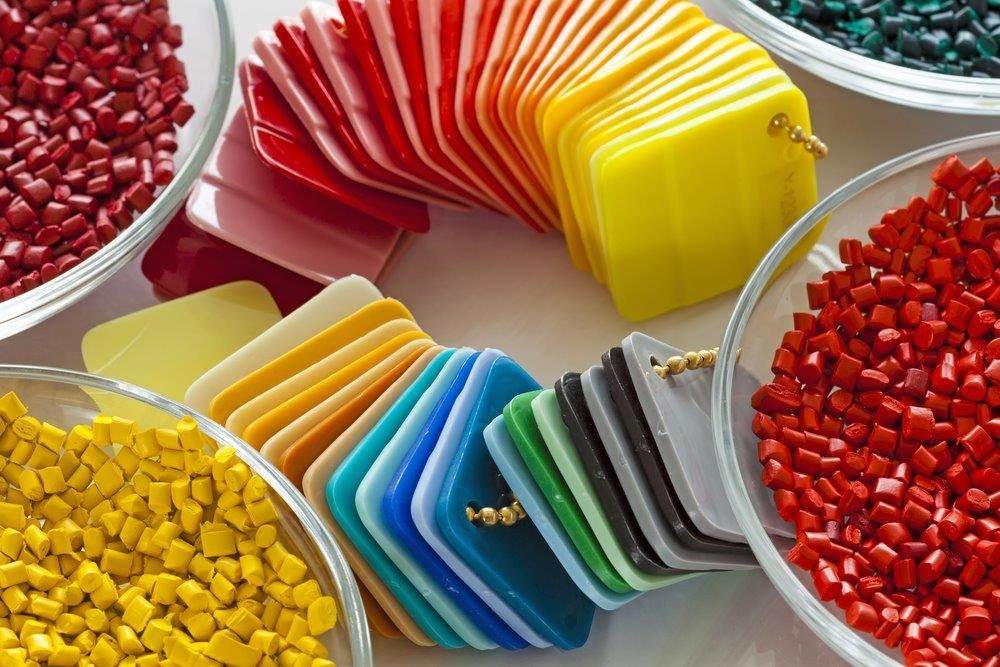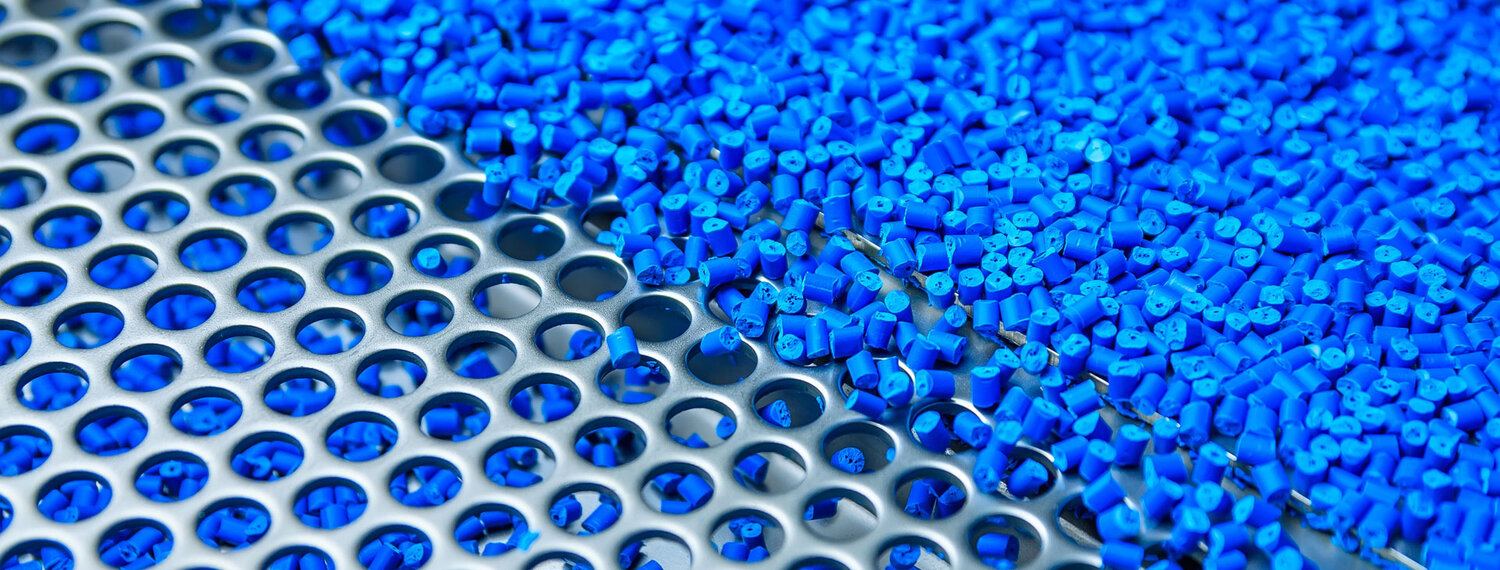Acrylonitrile Butadiene Styrene (ABS) is a widely used thermoplastic polymer known for its excellent durability, impact resistance, and versatility. Due to its unique properties, ABS is used in various industries, from automotive and electronics to consumer goods and construction.
This guide will explore the ABS plastic manufacturing process, its applications, features, and advantages, along with insights into how Surya Masterbatches enhances ABS materials for improved performance.
1. What is ABS Plastic?
ABS is a type of thermoplastic polymer made from a combination of three monomers:
- Acrylonitrile – Provides chemical resistance and thermal stability.
- Butadiene – Enhances toughness and impact strength.
- Styrene – Gives ABS its glossy finish and rigidity.
The balance of these components results in a lightweight yet highly durable plastic that is easy to mold and process.
Key Properties of ABS Plastic

Strong & Impact-Resistant – Ideal for high-stress applications.
Lightweight – Provides strength without adding unnecessary weight.
Heat & Chemical Resistance – Maintains integrity under harsh conditions.
Easy to Mold & Process – Suitable for injection molding and extrusion.
Aesthetic Appeal – Can be colored, polished, or coated easily.
2. ABS Plastic Manufacturing Process
The ABS plastic manufacturing process involves multiple steps to achieve the desired material properties. Below is a step-by-step breakdown:
Step 1: Polymerization of ABS
ABS is manufactured through an emulsion or continuous mass polymerization process, where acrylonitrile, butadiene, and styrene are chemically combined to create a strong polymer matrix.
- Emulsion Polymerization: A water-based method that produces ABS with uniform properties.
- Mass Polymerization: A solvent-free method that ensures high purity and consistency.
Step 2: ABS Compounding
Once the ABS resin is formed, various additives and reinforcements are added to modify its properties:
Common Additives in ABS Compounding:
- Color Pigments – For aesthetic customization.
- UV Stabilizers – To improve weather resistance.
- Flame Retardants – For fire safety applications.
- Plasticizers – To enhance flexibility.
- Reinforcements – Such as glass fibers for additional strength.
Step 3: Extrusion & Pelletizing
The compounded ABS material is melted and extruded into uniform strands, which are then cut into ABS granules or pellets for easy handling and manufacturing.
Step 4: ABS Product Manufacturing
The final ABS granules are processed using various manufacturing techniques:
- Injection Molding – Used to produce complex shapes like automotive parts and consumer electronics.
- Extrusion – Used for making ABS sheets, pipes, and profiles.
- 3D Printing – ABS is a popular material for prototyping due to its durability and ease of use.
3. ABS Plastic Applications & Uses
ABS plastic is widely used in multiple industries due to its versatility and strength.
Automotive Industry
- Dashboard components
- Bumpers and trims
- Interior panels
Electronics & Appliances
- Laptop casings
- TV frames
- Power tool housings
Consumer Goods
- LEGO toys
- Sports equipment
- Luggage and travel cases
Medical Applications
- Surgical instrument housings
- Prosthetics
- Medical device enclosures
Construction & Plumbing
- ABS pipes and fittings
- Protective casings
- Wall panels
3D Printing
- Prototyping
- Customized parts
- Rapid manufacturing
4. Advantages of ABS Plastic
ABS plastic is widely chosen due to its unique benefits:
Cost-Effective – Affordable compared to other high-performance plastics.
Impact Resistant – Can withstand heavy impacts without cracking.
Weather & Heat Resistant – Maintains shape and durability under various environmental conditions.
Easy to Process – Compatible with injection molding, extrusion, and 3D printing.
Versatile & Aesthetic – Available in various colors and finishes.
5. ABS Granules & Their Uses
ABS granules are small, processed pellets that can be melted and molded into different products.
Uses of ABS Granules
- Recycled ABS granules – Used for cost-effective applications in the automotive and packaging industry.
- High-impact ABS granules – Used for manufacturing durable parts in appliances and industrial equipment.
- Transparent ABS granules – Used in consumer electronics and aesthetic applications.
6. Why Choose Surya Masterbatches for ABS Plastic?
Surya Masterbatches is a leading manufacturer of custom ABS Compounds, enhancing the properties of ABS plastic for different industrial needs.
Benefits of Using Surya Masterbatches for ABS Materials
Enhanced Strength & Durability – Our additives improve the mechanical properties of ABS.
Custom Color Solutions – We offer color masterbatches for various applications.
UV & Heat Stabilization – Increases the lifespan of ABS plastic under harsh conditions.
Eco-Friendly & Sustainable – Focused on reducing environmental impact through efficient processing.
7. Conclusion
ABS plastic is a versatile, cost-effective, and highly durable thermoplastic, making it one of the most widely used materials in various industries. From automotive parts to electronics and construction materials, ABS continues to be a preferred choice for manufacturers.
Call to Action
Looking for high-quality abs manufacturing process compounds and masterbatches? Surya Masterbatches offers customized ABS solutions designed for strength, durability, and performance.
Contact us today to explore our wide range of ABS plastic masterbatches and get the best materials for your production needs!
